When I reached out to Jon Terry, the Executive Director of the Au Sable Institute of Environmental Studies, to ask for an interview, Jon immediately suggested that the Institute’s new director of college programs might be a better candidate. Jon, it was clear, felt that the new director would have more interesting things to say. How fascinated would readers be in budgeting, staff leadership, and strategic planning? But on instinct, I stuck with my original intention. And I’m glad I did.
Much of the progress we have to make in Creation Care isn’t in theology and isn’t in remote, pristine places. We need to make progress in the messy and challenging places where our the ideals of whole Christian values meet the realities of how we use land and water and how our human society works. Leadership of an organization is one of those places. As you will see, Jon is eloquent, insightful, and candid about practical leadership, theology, and emerging challenges. He believes Christians should be on the forefront of solving the most pressing challenges that God’s earth faces.
Prior to joining the Au Sable Institute, Jon was president of Capitol Youth Strategies LLC in Washington, D.C. His company provided strategic consulting to nonprofit organizations working to ensure that young people are prepared for college and career and are able to achieve success in life. Jon holds a bachelor’s degree from Calvin College and a graduate certificate in Nonprofit Management from George Mason University. He has been married to Kristen for 27 years and they have two sons in their 20s.
Nathan: Can you share your journey of faith and how a concern for Creation has become part of that?
Jon: I was raised in a Christian home and come from a long line of faithful Christians. So it was presented to me as a young age, but like any good teenager, I rebelled. There was a period where I was like, “What do I really believe?” And so I set out to live my own way, but I couldn’t shake the belief that I was created and loved by a god.
There’s some author, maybe it was C.S. Lewis, who talks about the idea that in the center of everyone there’s a believing self and a doubting self. I relate to that and feel, on most days, my believing self is about 51 percent and the doubting self is 49 percent. And I have to choose which side to nurture. I choose every day to nurture my believing self.
As far as caring for the earth and Creation, I guess my defining moment for that was when I was studying at Au Sable in the middle of winter in January of 1991. I was an undergrad at Calvin University in Grand Rapids and took a, a course up here at Au Sable where I now work. And God spoke to me one night – which is a story in and of itself – but it changed the trajectory of my life. It was when I was on a walk by myself in the middle of the night, just kind of standing on the edge of a frozen pond. It was really impactful to me. For some reason, I could hear God better when I was out in His Creation. I was grateful for that and wanted to tap into that.
So it was a completely selfish desire to tap into wisdom and truth. It was less about caring for Creation at the time than just kind of recognizing there’s something special about being out in the created world. I’m able to be closer to the Creator there than when I’m in the middle of the, a city, at college, or inside a house. I don’t think it’s required. I don’t think you have to be standing on the edge of a frozen pond. But for whatever reason, it certainly helped me at that time.
Nathan: You were born and raised in Michigan. What’s special to you about the land and water of your state?
Jon: I love Michigan, particularly northern Michigan. Halfway between the equator and the North Pole is the 45th parallel, and it runs between my house and Au Sable. So every day I pass over it twice going in each direction. And I always say that you’ve got to be north of the 45th parallel, or at least close to that, to really be in Michigan. <laughter>
I grew up in Charlevoix, which is on Lake Michigan, about an hour from here. When I lived on the East Coast for about 20 years after college. I just missed the lakes, especially the big lake – Lake Michigan. And when I’m swimming in that cold lake now late in the evening before the sun goes down, that’s when I feel most alive. There’s just a lot of beauty here. You’re always aware of it, because like half the year it’s trying to kill you. <laughter> It’s just that you’re not in control, particularly during those winter months.
When I lived in a city for those 20 years away from Michigan, someone once asked me, “When was the last time I stepped foot on the earth?” And it had been months. You’re just constantly on pavement or a sidewalk. That’s not the case here, which is great.
Nathan: I first visited the Au Sable Institute in 2017 and was really taken by it and the warm, welcoming spirit of the people there. Can you share what the mission of the Au Sable Institute is and what it’s doing?
Jon: Yes. I work for a really cool and amazing organization. Our mission is to inspire and educate people to serve, protect and restore God’s earth. We were started in the late 1960s by a professor of biology from Taylor University in Indiana as a camp for kids in the summer. He needed counselors. The college students he knew were all biology students, so he brought them up to be counselors for kids. And he quickly realized that the counselors were actually getting more out of the experience, or at least as much out of it, as the kids. So he essentially established a field station for Taylor students who were in the biology or, or environmental sciences. Then Calvin College joined with them.
If you go to a big university, the university will have a field station for the science students. Most Christian colleges don’t have that for themselves. So we serve that role for about 53 Christian colleges throughout the U.S. and Canada during the summer. Students from these schools come to us here in northern Michigan. We also have a campus off of Seattle on Whidbey Island that we call our Pacific Rim campus. So if you’re interested in marine life, marine biology, and alpine ecology, you take courses out there. And we also have one course in Costa Rica that focus on sustainable agriculture. The rest of the year we work with local schools and churches on habitat restoration projects and environmental education programs.
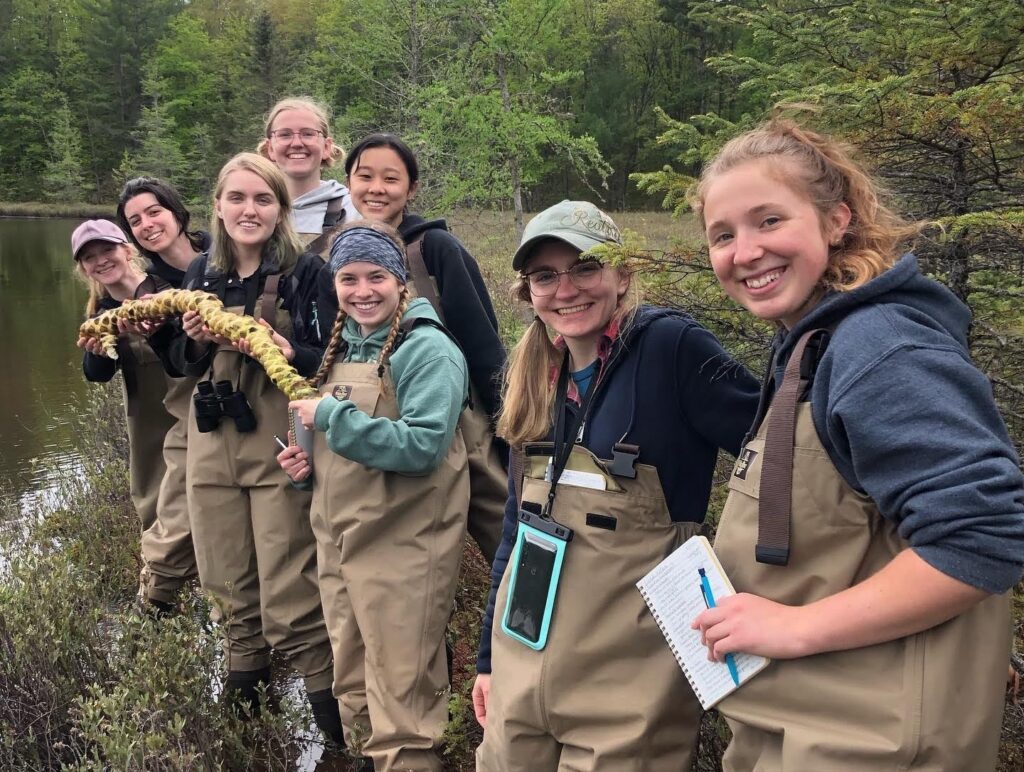
Students in the Field Biology of Spring course show off a piece of God’s Creation – a lily pad rhizome retrieved from the pond behind them.
Nathan: You mentioned you had been in Washington, D.C. for 20 years. What brought you back to Au Sable? What was that calling?
Jon: Honestly, it was a calling just to get back to northern Michigan. My wife and I just felt it was time. It was fun living in a big city when you’re young and energetic and proving yourself. That was important to me when I was young and right out of college. But after a while, the great achievement was just making it through a year. You make a ton of money; you spend a ton of money. And everything’s kind of a fight. We were ready to live differently, and we wanted to come back to northern Michigan.
Au Sable wasn’t on my radar at the time. My initial plan was to keep my foot in Washington, DC. And that wasn’t working out. A year or two after I was back in northern Michigan, I was questioning what I was doing with my life. What am I supposed to do? It wasn’t working out, as I thought it would work out. A position opened up here focused on external relationships communications, fundraising partnerships, and alumni relations. So I applied for that position and, thankfully, got it. I’m very grateful for that. That was about five years ago.
God is much more creative than I am. I never could have figured this out on my own and make it happen on my own. So I’m just really grateful to have ended up back here.
Nathan: Tell me more about how Au Sable is evolving and how your leadership is helping make that possible. I’m confident you’re a servant leader and not a dictator.
Jon: Well, that’s my goal, but you should talk to the staff. <laughter> My approach is to hire really good people, trust them to do their jobs, empower them, and remove barriers for them.
As far as our programming, there are a couple of issues we’re working on now, particularly related to our engagement with community schools, where we’ve been doing things the same way for 40 years. We’re asking, “Does that still make sense? Is that still a need?” We’re still trying to crack that.
I think one thing I’ve brought here is just a willingness to really look at things, even our college program, and see if it’s time to do it differently. There is value in how we’ve done things. I respect that. But I also think it’s good to ask the question, “Why do we do it that way?” I’d like us to be willing to try new things, be willing to fail. That’s a big thing that I’d like us to do. Hopefully not too much failure, but that’s how you learn.
As an example, next summer, we’re going to add an agro-ecology class course and a one-week program for people who aren’t college students. There are a lot of people other than college students who are really interested in the issue of caring for the earth, particularly from a Christian perspective and what it means for their faith. And right now, if you’re not a college student who wants to spend five weeks on our campus taking a really intensive course, there’s not much that we offer for you. We’re still figuring out exactly what that course will be, but it will be a chance for those people who care about these issues and want to spend a week on our campus exploring them.
Nathan: We talked at the very beginning of this interview about servant leadership, and I see a parallel between leading an organization with a servant leadership paradigm and serving God’s Creation, enabling it to thrive by both protecting and restoring it. So have you learned anything from being a servant leader for the organization that might apply to how we take care of Creation?
Jon: Maybe the commonality is being willing to lead while still being humble. I think I am humble, because I just know I have a really limited view of the big picture and just how complicated things are, particularly if it involves people.
You know Creation and ecosystems are full of complexity as well. When you go into leadership or Creation stewardship thinking you have it figured out and you have confidence that you have it figured out. I guarantee you don’t have a clue. You can’t really know what’s really going to happen when you pull one thread out when everything’s connected to it.
I talked earlier about coming back to Michigan and thinking I had a plan and being really confident in that plan. Nothing transpired the way I thought it would play out. So I guess I’m just recognizing my limitations. One of my favorite verses is in Psalm 100. At our staff meetings, we usually open with a scripture. If I’ve forgotten to assign someone to bring one, my fallback is Psalm 100. “Know that the Lord himself is God. It is He who has made us and not ourselves. We are his people and the sheep of his pasture.” It’s not my job to figure everything out. I need to be reminded of that. And, frankly, a burden is lifted when I realize that I’m just a sheep. When I forget that and think I’m the shepherd, then there’s issues. Things don’t go well.
One of the recurring themes in a lot of the writings of Wendell Berry is about humility in the face of Creation, what’s around us, and these longstanding patterns and relationships that we’re just barely perceiving. Science leads us to believe that we can manage everything and control everything and understand everything. And that’s just really, really faulty.
I read a good book called The Life and Death of the Great Lakes. Every step along the way in the building of the Erie Canal, people think they’ve got it figured out and know exactly what’s going to happen. Then the sea lamprey comes through (and that became an ecological disaster). And when we go to fix one thing, then that screws up another thing. Everything’s connected. We’re just constantly screwing things up. It’s just way more complex than we can understand. There are limitations.
Nathan: What sort of impacts have you seen Au Sable have on the students who come through?
Jon: What I consistently hear is the word “misfit.” Before coming to Au Sable, many students felt like misfits in their church communities and perhaps in their families and even at their schools because of their love of the earth. They didn’t quite fit in, and they’re kind of looked at with suspicion. And then in the scientific community, they’re looked at with suspicion because of their faith. So they just felt they didn’t fit in to any circle. When they’re all here at Au Sable together and surrounded by other students from all these other schools, it’s the first time they don’t feel that. If they see a snake, for example, they all gather around it. They have competitions to see which of the dorms can find the most different bird species. In most other places, that kind of thing would be kind of weird. Here it’s really encouraged and celebrated.
I just sent out an email to our students who were here both this summer and the year before and about 10 students replied. One got a job at an environmental nonprofit. She wrote: “I think about Au Sable often. I’ve enjoyed sharing what I’ve learned with my friends and family. I can’t thank you enough for everything you’ve done that led me to Au Sable because it has been one of the greatest joys of my life.”
Then this other student wrote: “I’m now a restoration technician at the Midewin National Tall Grass Prairie with a nonprofit organization called The Wetlands Initiative. I’m constantly inspired by how Midewin is healing. Although many areas are still in early stages of restoration, the native floor and fauna are coming back and thriving. I’m thankful that I have the opportunity to help restore what is left of the Prairie State. I’m excited to be caring for God’s Creation while sharing its beauty with others.”
Other students shared how Au Sable first showed them that doing the things they value could be a career, that this matters to God, and that this work can be part of building God’s Kingdom. And they’ve never heard that before.
Nathan: That is awesome. Are you seeing trends among those colleges in terms of Creation Care?
Jon: It’s hard to tell, to be honest. Some schools are farther along. They’ve got clubs on campus specifically around sustainability projects and caring for Creation. At others, this is really not on the radar at all and not any sort of priority. We serve all sorts of different schools in all stages.
Nathan: What are some of the biggest challenges that kind of keep you up at night?
Jon: The divisiveness of our culture is really hard. Christian colleges are on a spectrum of theological beliefs on a lot of hot button issues. We serve all of them, and we want their students to come to us and be a community while they’re here. But students often pick their schools because they’re aligned with the students’ particular beliefs and upbringings. And so they’re kind of expecting us to be like their home school.
One of our benefits is that we’re not. We have students across the spectrum, and we all come together. But students then need to grapple with what does community means while they’re here. How do you respect people that have different views on the age of the earth, on climate change, and on human sexuality issues? Schools are taking positions. And people are picking what group they want to be in and just want to be around people of that group.
I have a deep fear that that it’s going to just continually be harder and harder for us to be neutral. I don’t know if “neutral” is the right word. We stand for something. I’m a zealot for what I believe. But how can people from different schools all come together and be a community, particularly while they’re here, and respect each other and love each other?
Nathan: We’ve had multiple conversations in the past, and you often circle back to liturgy, the work of the people. Can you say a little bit more about that?
Jon: I love liturgy. When I was in DC, we went to an Anglican church where liturgy was a big part of it, and I loved the rootedness of it, the faithfulness of it, the beauty of it. Here, we like the idea of liturgy – it could just be a walk through the woods – as daily habits and as a way to push back against the larger culture. Your time in church on Sunday morning is not enough to reorient your frame of thinking about your role in God’s story. Our country’s culture can be distorted and give you distorted thinking about your values. So we need to ask what are the things we do on a daily basis that help remind us of God’s story, the truth of God’s story? A walk in the woods can remind you that you’re the sheep and not the shepherd. It’s humbling.
(Note – Jon led the development of a beautiful liturgy workbook around Creation Care at Au Sable that is entitled Liturgies of Restoration. You can order a free copy here.)
Nathan: I’d like to take that thought about a liturgical culture further. You’ve gone to different churches in many different places. Do you have any thoughts for what Christian culture would be like if it was true to God and yet made a concern and consciousness of Creation an essential element? How could we build that kind of culture?
Jon: I don’t have an easy answer for that. I think a lot of it has to do with what is your end? We shouldn’t want Creation at the end of the day to be the end goal. Our goal isn’t that we have clean water. What we need to ask of anything is, “Is this going to glorify God?”
Caring for Creation is a natural expression of Christian faith. It’s a part of what you do to be faithful to Jesus and to love the things that God cares about. It’s like a spiritual discipline to me. So when you read about spiritual disciplines like prayer and fasting, you do those things. Not because you want to be really good at prayer and fasting. You do them because you want to be more like Christ. And if you could be more like Christ without those things, then you wouldn’t have to do them. So, to me, being aware of the earth and God’s Creation and caring for it is just another spiritual discipline, a means to the end of being more Christ-like.
I think more Christians would be willing to go along with Creation Care if they realized that being more Christ-like was the end goal and not feel like the most important thing is the health of the environment. They don’t want to feel that you will use their faith in order to get them to do what you want. It’s more about, “I love Jesus. I believe what the Bible says about God and His Creation.” That’s the end. It’s just natural for me then to want to respond to that. As opposed to starting with, “We need to address climate change so let’s use your faith to have you act differently.”
So, if it’s about Jesus, the climate gets changed even though the work itself might look the same. I guess it goes back to that divisiveness issue again. Some Christians fear (that if they work to protect Creation) that all of a sudden they’re going be driving a Prius with a Coexist bumper sticker.
Nathan: We have two thousand years of history in which taking care of Creation hasn’t been seen as part of how we serve and love God. It’s been peripheral. In fact, being concerned about Creation made you suspect, because it seemed like you were worshipping nature. How would you change that in a local church? What would make possible a church culture that cherished this world that God loves?
Jon: My grandma’s favorite song was, “I’ll Fly Away.” It’s a beautiful song. And it’s also completely wrong. It’s the idea is that we’re bound for something else, and this earth is not it. This idea needs to be changed.
When I speak to churches now, I always include a strong focus on the cosmic scope of Christ’s desire to restore all things. In advance of this interview, you said you were going to ask what my favorite Bible verse is around Creation Care. Christians usually go to Genesis 2:15 where we’re called to serve and protect Creation, which is what dominion looks like. But I was actually going to read from Revelation 21:1-4 in which there is the image of the new heaven and the new earth coming here. We’re not going to be sucked away.
The best book I think that you can read on Creation Care isn’t specifically about Creation Care. It’s called Surprised By Hope and is written by N.T. Wright. It blew my mind. It made me understand Christ’s resurrection as the first fruits. Christ’s resurrection gives us a glimpse of what the new earth is going to look like. That changes everything about what building the kingdom looks like now, particularly in the sense of the earth. If there was more of an understanding of where we’re headed and how it doesn’t just involve people – it involves everything! – that would be very helpful.
Nathan: I really appreciate you bringing up Revelation and what the end goal is. We need an alternative to the Left Behind series.
Jon: Well, that was half my childhood. They were big at the time. I had a good friend who anytime he’d come home and his parents weren’t home, he’d freak out because he thought he was left behind. He was scarred for life. And Left Behind is not true. The whole story in the Bible is about God coming down here. It’s really beautiful. It changes how you live now.
Nathan: Absolutely. Jon, I believe anytime we’re doing what God wants from us in our lives, we’ll usually be compelled to grow as people. God doesn’t usually give us a task that’s super easy. We’re often called to things that stretch us and take us beyond what we think we want to do. So I’m curious about how sense you’re being called to grow.
Jon: That’s a great question. I guess I’m growing in two ways. The first is that I’m growing with grief and suffering. I lost a younger brother a little over a year ago.
Nathan: I’m sorry.
Jon: Thank you. I’d made it 50 years of my life without ever experiencing what death and grief were. When I’d have friends or a loved one who would lose someone, I’d say the right things, but not have a clue of what they were feeling. So I’m just growing personally a lot through this grief. And with my parents and my wife’s parents, it feels we’re entering a phase where there’ll be more grief, and we’ll be learning how to live with that. I don’t know how I missed out. So how do I learn more about being Christ-like through suffering? That’s a big chunk of my life right now.
The other half specifically related to my leadership is that for a lot of my life I liked people to like me. I like making decisions, but when you’re a leader, the stuff that comes to you isn’t the fun stuff. The good stuff gets taken care of without me. The hard stuff comes to me. With every decision, someone’s going be disappointed. I have to learn to just live with that and grow through that. A big growth area for me is making decisions when you know it’s going to disappoint someone, but then remaining in relationship with them and moving on and continuing to respect each other and work together. It’s not easy.
Nathan: Is there anything else I didn’t ask you that you’d like to share thoughts on?
Jon: No, this has been great. I appreciate you helping me think about these issues. I’m grateful for your interest in our work and what you do to push it forward and to bring attention to it and your willingness to be a misfit, too.

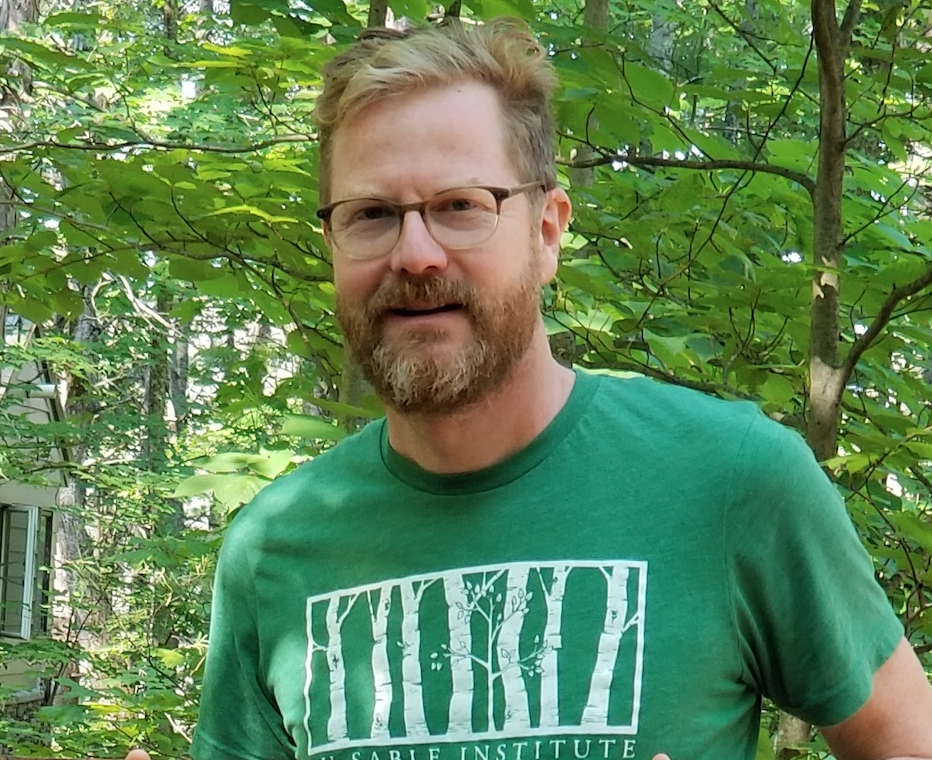
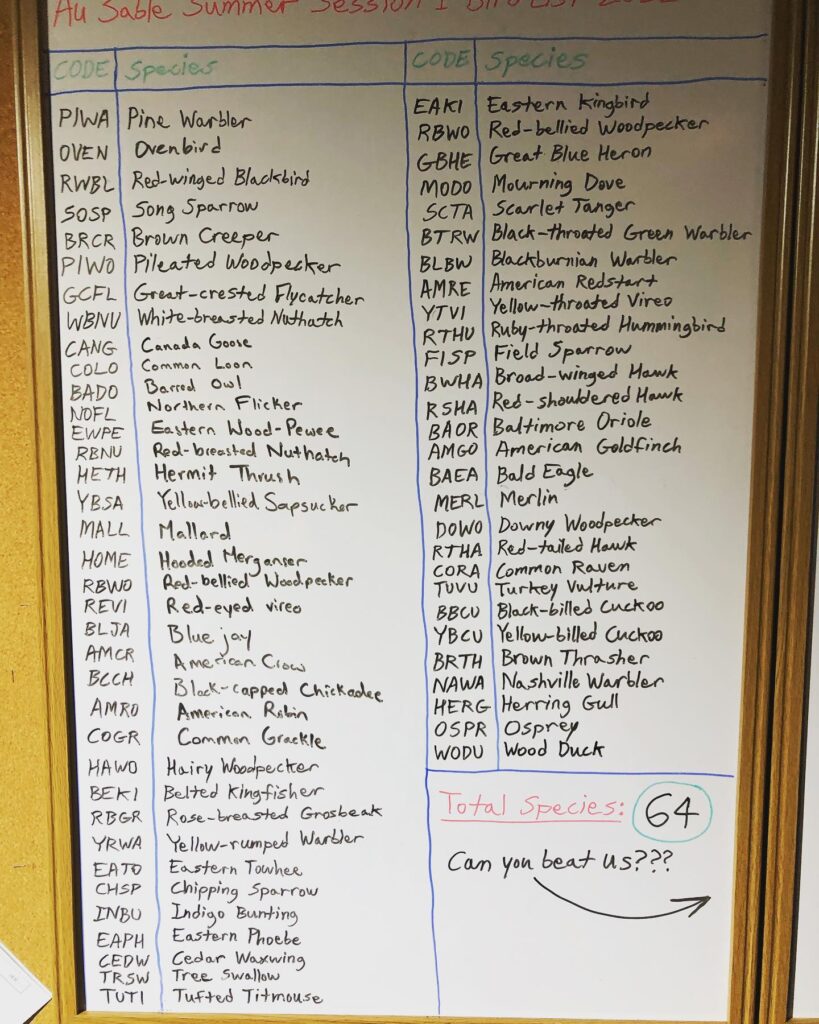
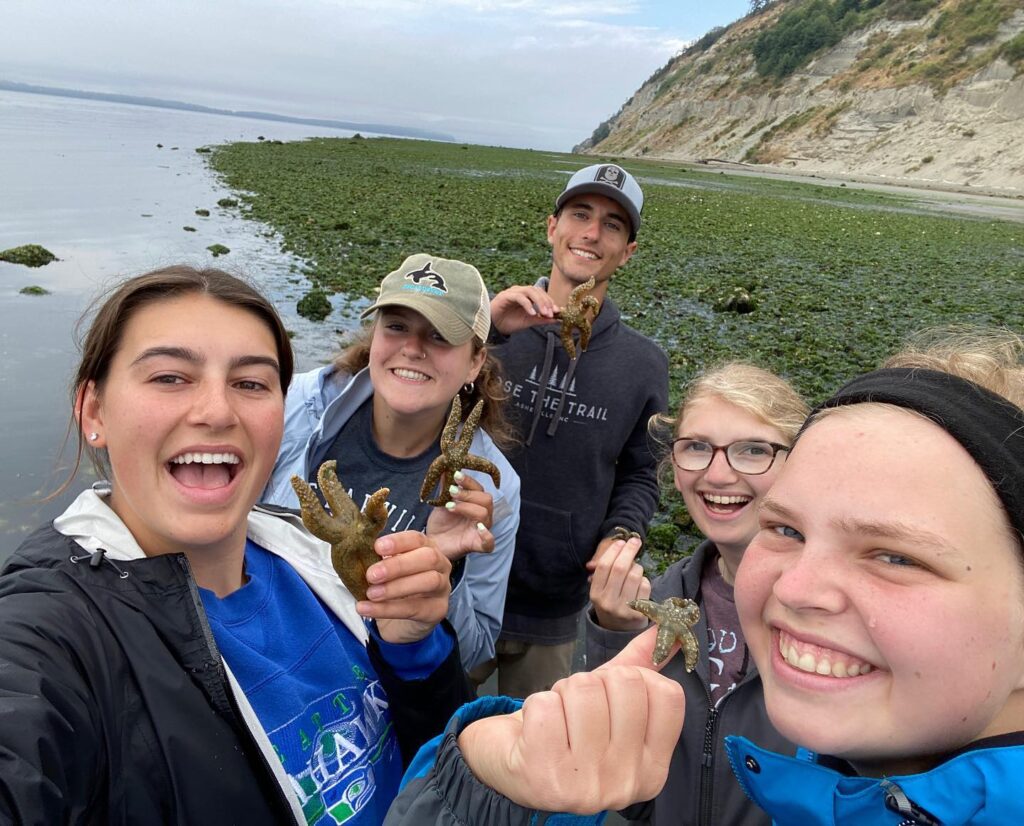
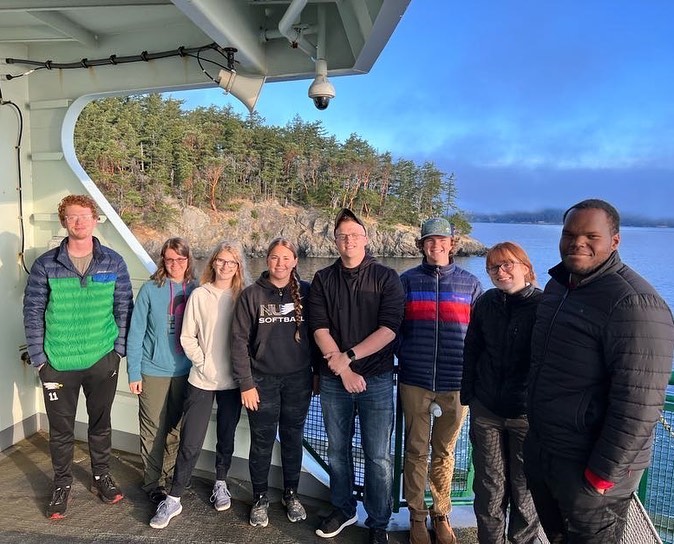




Nathan, Thanks so much for doing this interview!
Jon, I really appreciated reading this interview. I know you well enough to know that this is the real you – no façade, humble, caring, a servant-leader, and eager to be used by God to do whatever He calls you do do. I appreciate you and Kristen. Hugs to you both from Sally and me.
You’re welcome, John! And thanks for your service to Au Sable and passion for lakes!